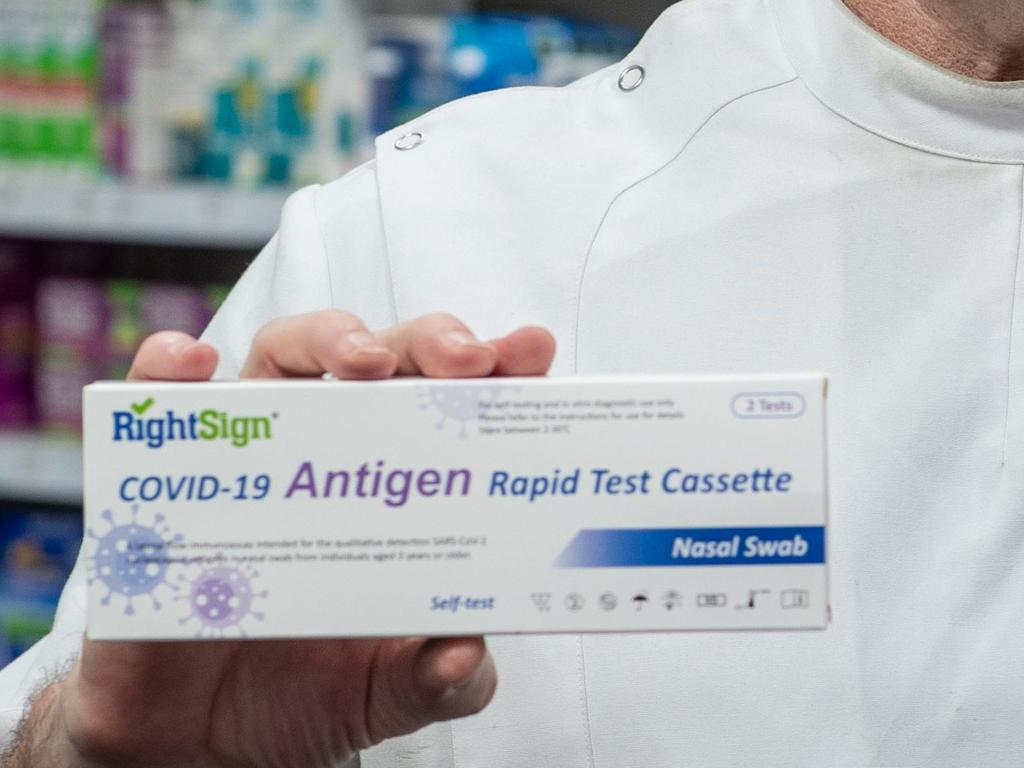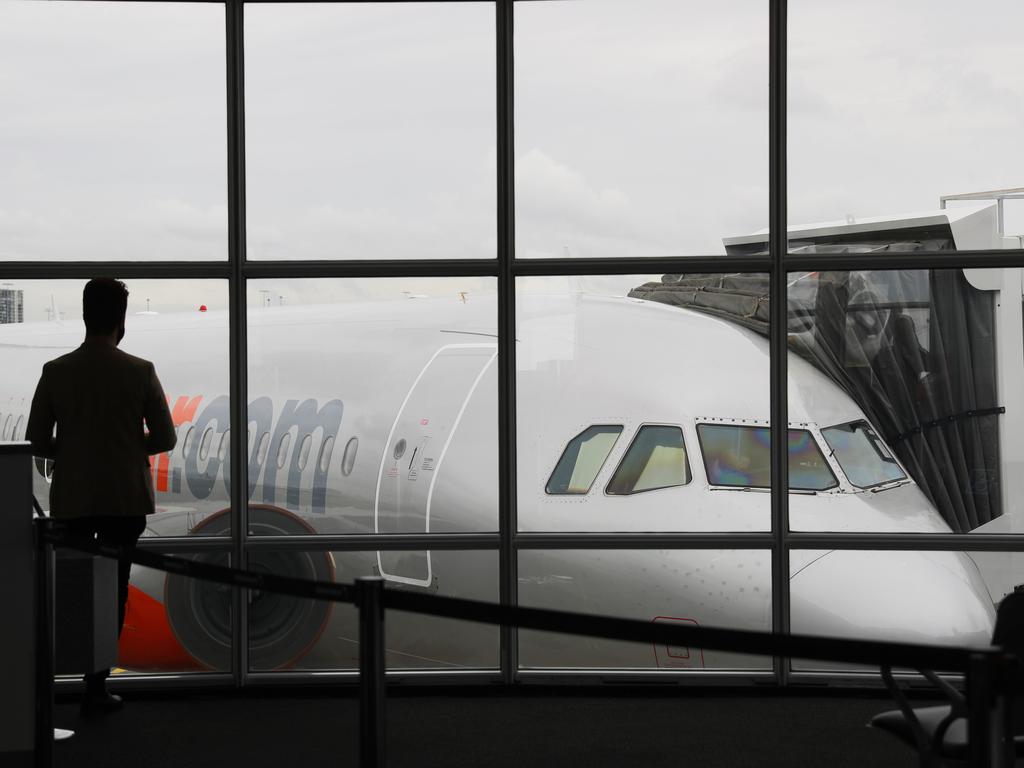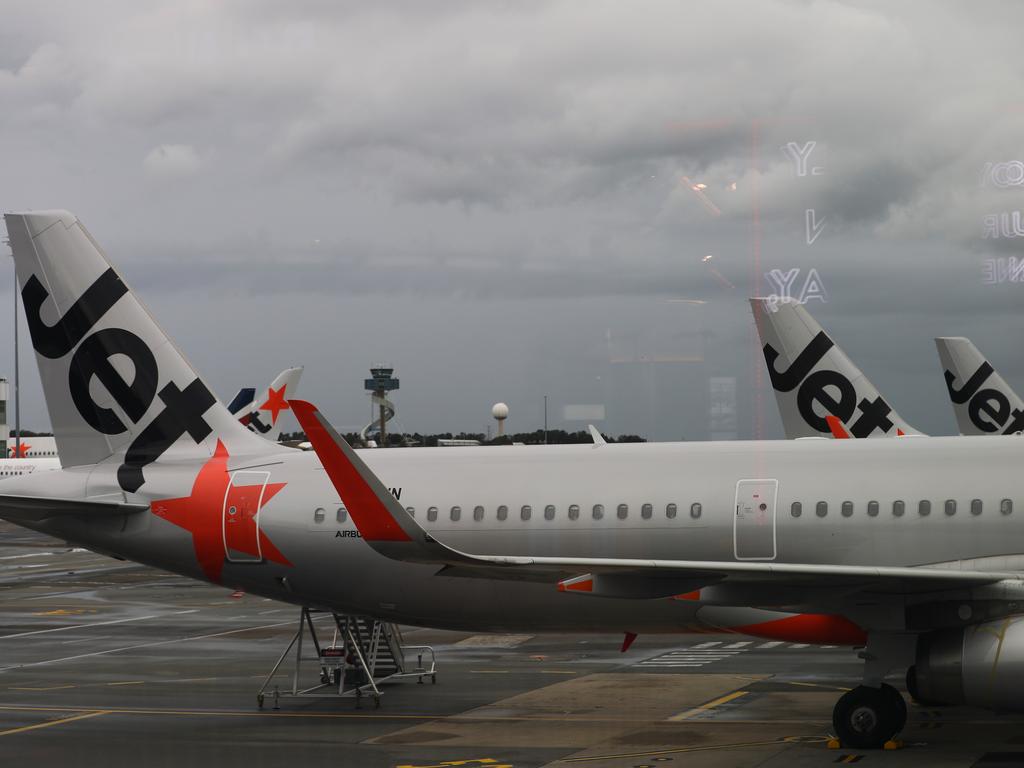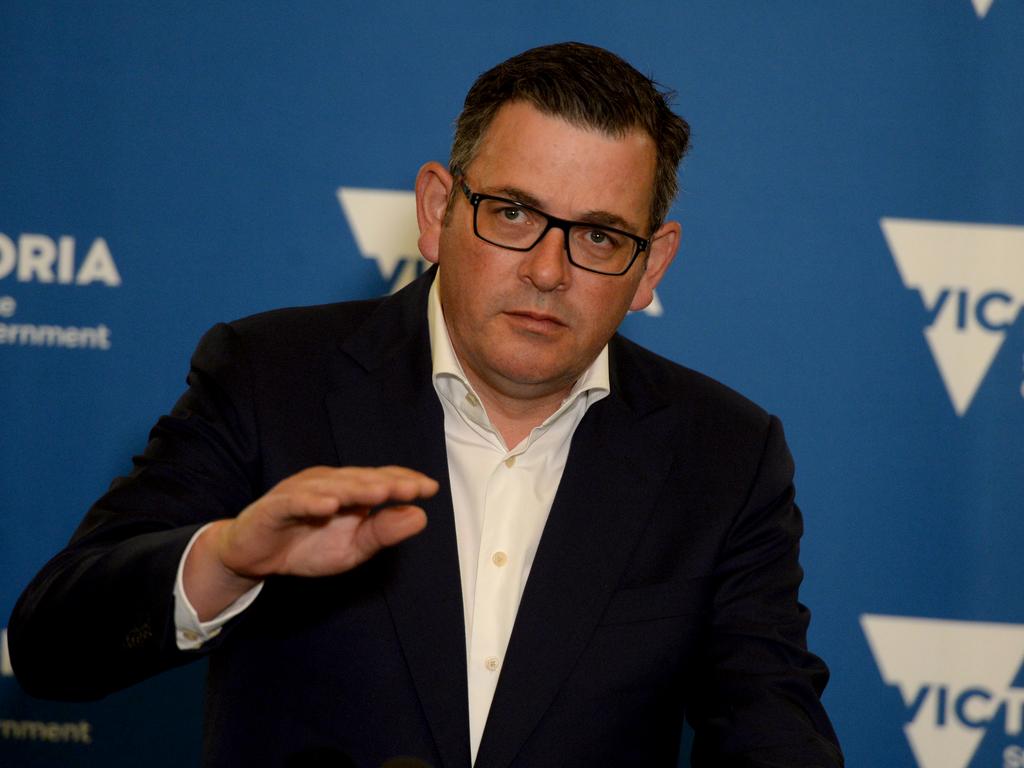State of our borders: where you can and can’t travel
Queensland’s Premier says she’s considering a major change to entry requirements. See state of our borders.
Queensland Premier Annastacia Palaszczuk says her state will look at allowing travellers from hotspots to use rapid antigen tests at the start of next year.
Queensland requires fully vaccinated travellers from areas like Victoria, NSW and the ACT need to take a PCR test and return a negative result 72 hours before arriving.
The rule has been criticised for creating testing backlogs and delaying results for people who have been exposed to the virus.
Rapid antigen tests are not as accurate as PCR tests but they are quicker and can be used at home.
Ms Pałaszczuk said that NSW Premier Dominic Perrottet had confirmed that 10 per cent of PCR tests being carried out in his state were for people wanting to travel to Queensland.
“We are happy to get some further advice about rapid antigen tests,” she said.

“We will look at whether this is approved, that we may be to legalise them in the New Year from January 1,” she said.
“But between now and the New Year, we will require those PCR tests for people coming into the state.
“It was part of our plan and we want to keep the virus out as much as we possibly can over the Christmas and New Year.”
It comes as the state of our borders is being revisited as cases of the new Omicron variant continue to grow across Australia.
On Monday, new rules kicked in requiring interstate travellers to Western Australia to quarantine.
The state also tightened restrictions with Queensland and Tasmania.
Queensland has been categorised as “medium risk” instead of “low risk”, requiring travellers to get an exemption to enter WA, and then spend two weeks in quarantine.
Tasmania’s rating has changed from “very low risk” to “low risk,” meaning that travellers will have to quarantine and adhere to testing requirements. They will also have to be fully vaccinated.
“We want to try and get through the Christmas (and) New Year period without any spread of the virus in Western Australia,” Premier Mark McGowan said on Friday.
“We don’t want to see the pandemonium and chaos that is occurring in states in the east occur here over this crucial period for families and small businesses.”

Meanwhile, international travellers arriving in Victoria and NSW will no longer be required to isolate for 72 hours after a joint agreement between the two states was announced on Friday.
From Tuesday December 21, fully vaccinated international travellers and flight crew arriving in Melbourne and Sydney will instead be required to get a PCR test within 24 hours after arrival and isolate until they receive a negative result.
Under existing arrangements they are also required to produce a negative pre-departure test, within three days of boarding their flight.
Previously, all fully vaccinated international arrivals in Victoria and NSW had to get tested as soon as possible and isolate for 72 hours regardless of when they received their negative result.
Arrivals in Victoria must also get a PCR test between days five and seven after arrival.
Those aged 18 and over who aren’t fully vaccinated will still be required to undergo 14 days’ mandatory hotel quarantine.
Acting Victorian Premier James Merlino said the change would make it easier for international
arrivals.
Controversial travel bans on arrivals from eight southern African nations have also been scrapped, and foreign students and skilled migrants are allowed back into Australia.
This is what we know so far:
TASMANIA
After months of changing border restrictions, Tasmania has reopened to travellers from around the country on Wednesday, December 15 as double dose vaccination rates near 90 per cent.
All travellers entering Tasmania must complete a Tas E-Travel pass via the Tas E-Travel website.
Those from high risk areas will need to be tested 72 hours before travel.
Those travelling internationally will be required to quarantine for seven days in addition to those measures.
For those who refuse to comply, there could be consequences. Rule breakers risk an on the spot fine of $1557 or being summonsed with an offence to potentially cop up to six months in jail or a greater fine of up to $17,000.
Non-compliant travellers could also be sent packing.
“Over the last 22 months, we’ve made some very difficult decisions,” Premier Peter Gutwein said.
“We’ve had to stop people entering to attend a funeral, bury a loved one, we’ve stopped weddings, we’ve stopped events.”
WESTERN AUSTRALIA
Western Australia’s borders will reopen on February 5 at 12.01am, after the state’s Covid vaccination rate reached 80 per cent double dose for those aged 12 and over.
Premier Mark McGowan finalised details of the “safe transition plan” at a meeting of his Emergency Management Team on Monday.
He said this date was “locked in”.
From February 5, domestic arrivals must be double vaccinated unless they have a valid exemption.
Visitors will still be required to return a negative PCR test result within 72 hours of departure and undertake a PCR test within 48 hours of arriving in Perth.
If a traveller’s stay in WA is for five days or less, they will only be required to return a negative PCR test result within 72 hours of departure, and won’t need to get another test within 48 hours of landing.
Any international arrivals will need to return a negative PCR test result within 72 hours of departure and undertake a PCR test within 48 hours of arrival in Perth, as well as six days after arriving.
Double vaccinated visitors will have no need to quarantine.
For those who are not double vaccinated or have received a vaccine unrecognised in Australia, they will have to go into a hotel or dedicated quarantine facility.
Mr McGowan said the state’s quarantine cap for unvaccinated international arrivals could be limited to fewer than 100 people per week. An exact number had not yet been determined, but that “it may be down at 100 or perhaps less per week”.
SOUTH AUSTRALIA
South Australia’s borders are open to vaccinated travellers.
But South Australian Premier Steven Marshall emerged from emergency talks on Saturday, December 4, saying authorities were “extraordinarily concerned” about the Omicron variant. He stopped short of slamming borders shut. Instead, he announced travellers from NSW, Victoria and the ACT were required to have a Covid test on arrival into the state. If they plan on staying in South Australia, they will need to have a further test on day six.
Quarantine for international arrivals will go back to 14 days.

QUEENSLAND
The Sunshine State’s borders reopened to interstate visitors on December 13, four days ahead of schedule, after the state hit the 80 per cent double dose vaccination mark.
Fully vaccinated Australians are able to enter the state domestically by road or air, but must undergo a PCR test and return a negative result in the 72 hours prior to departure.
All arrivals, regardless of vaccination status, must get another Covid-19 test on day five after arriving in Queensland.
However, unvaccinated people arriving from hot spots must arrive by air and undergo 14 days’ hotel quarantine.
International arrivals must be fully vaccinated, return a negative test within 72 hours of departure, and must do 14 days of home or hotel quarantine.
Fully vaccinated border zone residents with a border pass will be able to move freely across the border, no test required.
NSW, VICTORIA
NSW and Victoria look set to keep the borders open ahead of Christmas.
Victorian Premier Daniel Andrews said he and NSW Premier Dominic Perrottet had been texting and had agreed they would not pursue an “Omicron zero” strategy.
“The notion that we try and keep this out forever … that just doesn’t make sense,” Mr Andrews said on Sunday, December 5.
He said both he and Mr Perrottet agreed it was important to reassure Australians that the borders were not at risk of closing ahead of Christmas.
“We think that’s important not just for the people of Victoria and NSW, but if Victoria and NSW are working closely together, I reckon that’s pretty good for the rest of the country as well,” Mr Andrews said.
Domestic visitors to Victoria no longer need to get a travel permit to enter the state, regardless of their vaccination status, unless they have been overseas in the past 14 days.
Victoria requires a permit to enter from overseas.

Domestic travel into NSW is restricted when a NSW Health identifies affected areas, areas of concern and places of high concern. Victoria and the ACT have been declared places of high concern; close contact. Anyone entering from these states – both residents and non-residents – must adhere to stay-at-home orders.
All unvaccinated passengers from any overseas country entering NSW must enter hotel quarantine and must follow the rules for people who are not fully vaccinated.
NORTHERN TERRITORY
Only Covid-19 fully vaccinated people, Territory residents and people unable to be vaccinated (such as children under 12 years) are able to enter the Northern Territory.
Unvaccinated Territory residents travelling from a “green zone” are required to quarantine.
Fully vaccinated domestic and overseas arrivals from a Covid-19 “red zone” may be permitted to undertake seven days home quarantine.
International arrivals who come in on a DFAT flight are still required to undertake 14 days quarantine at a supervised facility.
Unvaccinated Territory residents and people who have received authority via the “approval to enter the NT form” who are coming from a red zone, are required to undertake 14 days mandatory supervised quarantine.
AUSTRALIAN CAPITAL TERRITORY
The ACT’s rules and restrictions include high-risk geographical areas, places of concern and close and casual exposure locations.
NSW and Victoria have been labelled high-risk geographical areas.
Queensland, SA, NT, Tasmania are rated on exposure locations.
There are no restrictions for WA or Jervis Bay.
Fully vaccinated residents and non-residents of the ACT who have been in a high-risk geographical area in the last 14 days are permitted to enter the ACT for any reason but must complete an exemption form within 72 hours prior of their intended arrival into the ACT. All other fully vaccinated residents or non-residents that have not ben in high-risk geographical areas in the past 14 days can enter the ACT for any reason without filling an exemption form or having to do quarantine.
Unvaccinated residents that have been to high-risk geographical areas must quarantine for 14 days. But all other unvaccinated residents can enter the ACT without having to quarantine.
Unvaccinated non-residents cannot enter the ACT without an exemption. Those that receive an exemption must follow Stay At Home requirements.
Unvaccinated non-residents that have not been to a high-risk geographical area can enter the ACT for any reason and do not need to undertake quarantine.
International arrivals that are vaccinated must complete a three-day quarantine period at their residence or accommodation. Unvaccinated arrivals must enter 14 days quarantine.




